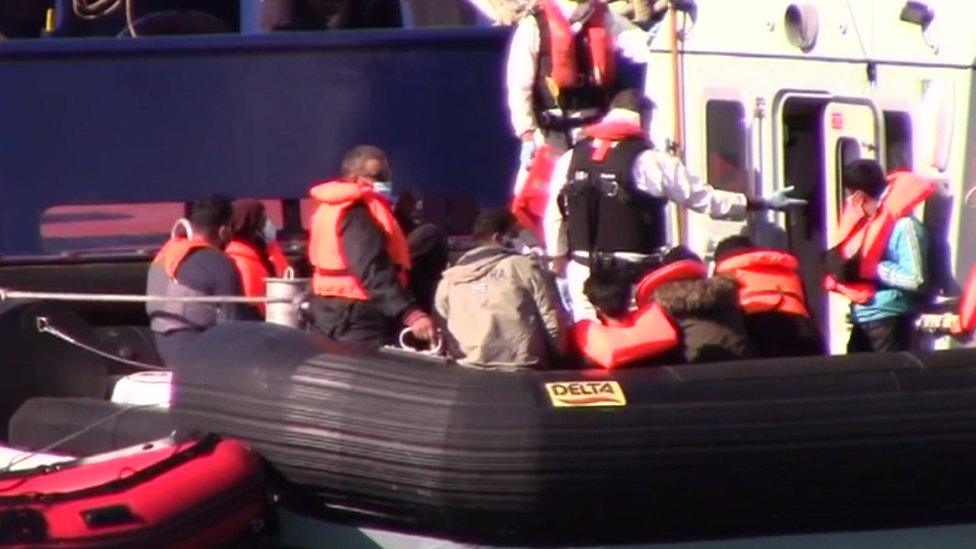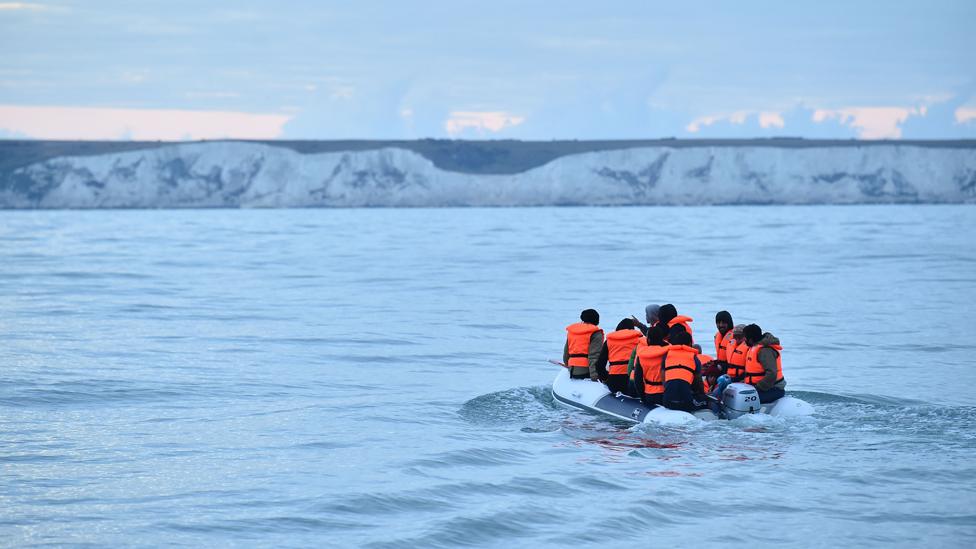Migrant crossings: Use of navy ships to stop boats 'dangerous'
- Published
The men and women on the boat told the BBC's Simon Jones they were from Syria
Using Royal Navy ships to help stop migrants crossing the English Channel is "dangerous" and "won't change anything", a Calais politician says.
On Saturday the Home Office asked defence chiefs for help to make crossings in small boats "unviable".
The Home Office says 18 Syrian migrants in a boat were picked up by Border Force on Monday morning.
More than 4,000 people have successfully crossed the Channel from France in small boats so far this year.
Pierre-Henri Dumont, the National Assembly member for Calais, told the BBC: "What is the British navy going to do if it sees a small boat? Is it going to shoot the boat? Is it going to enter French waters?
"It's a political measure to show some kind of muscle but technically speaking it won't change anything."
In response to Mr Dumont's comments, a Ministry of Defence (MoD) source said: "To imply that the UK navy would operate outside of UK and international laws and norms is dangerous and misleading.
"The military will support the Home Office in their work to combat Channel crossings."
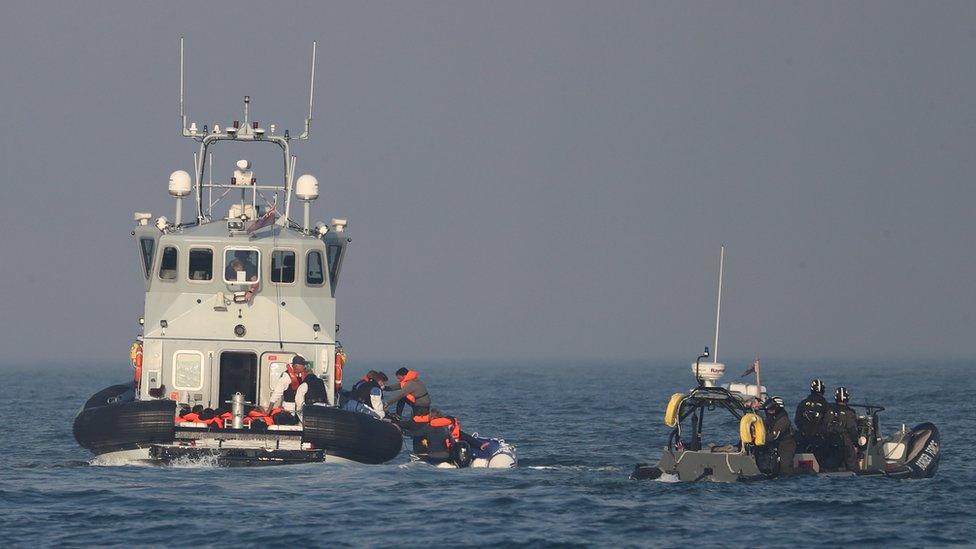
The Syrian migrants were picked up by Border Force and taken to Dover
Mr Dumont said the French authorities needed to monitor about 300 miles of coastline if they were to stop migrants launching small boats from French shores.
"We are already trying to do whatever we can. We can't have a camera and police officer every 10 metres."
The MoD says it has sent an RAF Atlas aircraft with spotters on board to help Border Force operations in the Channel.
Allow X content?
This article contains content provided by X. We ask for your permission before anything is loaded, as they may be using cookies and other technologies. You may want to read X’s cookie policy, external and privacy policy, external before accepting. To view this content choose ‘accept and continue’.

Home Secretary Priti Patel was in Dover on Monday and was seen disembarking from a police boat that had been in the English Channel earlier in the morning.
A spokesman for the Home Office said she joined Kent Police to see first-hand Border Force operations at sea and witness CPV Hunter and HMC Protector on patrol in the Dover Straits. She also met with Chief Constable of Kent Police, Alan Pughsley.
Ms Patel said: "The number of illegal small boat crossings we have seen recently is totally unacceptable.
"Our operational partners are dealing with complex challenges associated with them and collectively with the French we need make this route unviable.
"Across Government we are absolutely committed to shutting down this route and we will bring down the criminal gangs that facilitate these illegal crossings."

Analysis:
Helen Catt, BBC News
Since the demolition of the infamous "Jungle" nearly four years ago, French authorities have been successful in stopping other large scale camps from forming.
But migrants do still arrive in Calais, they are just more scattered.
Greater security measures - including a wall built along the motorway with UK funding - have made it more difficult for migrants to stow away on lorries.
In response, people smugglers have increasingly turned to the equally risky method of crossing in small boats.
The French and UK governments have worked closely on this for something approaching two decades; the Treaty of Le Touquet which effectively moved the UK border to Calais (and the French border to Dover) to allow checks to happen before crossings, was signed in 2003.
But they can't change geography.
Calais remains a magnet because it is only 20 miles from the UK - on a clear day in Dover, you can see the headlights of French traffic on the other side of the sea.
No amount of planes, walls or navy deployments can alter that.
Quite apart from the humanitarian issue, there is added political pressure for the UK government.
David Cameron was pretty roundly criticised for suggesting in 2016 that Brexit would mean the French would pull out of bilateral agreements and "Jungle-style" camps would appear on the south coast of England.
There's certainly no indication of that but there's no doubt that the images of dinghies landing on Kent's beaches will be a difficult one for a government that has set huge store by its promise to "take back control" of immigration.

More than 700 people were intercepted crossing the English Channel last week, including 235 - the record for a single day - on Thursday.
Immigration minister Chris Philp is due to go to Paris this week to demand stronger measures from French authorities.
He said he wanted to make the route "completely unviable" so migrants "will have no incentive to come to northern France or attempt the crossing in the first place".
Mr Philp added he also wanted to "return as many migrants who have arrived as possible", adding there were "returns flights planned in the coming days".
Migrants setting out to sea 20 miles east of Calais were filmed by a BBC team on Saturday
Sir David Normington, former permanent secretary at the Home Office, told the BBC the "only solution" was to work with French officials to "persuade them to intensify their efforts" to stop the migrants leaving France.
"If it takes money to help the French increase their resources and their manpower then that will have to be done," he said.
Sir David said he was "sceptical" about the deployment of the Royal Navy.
"If the navy is going to push boats back, it will have to go into French water to do that, and then you can only do that with the permission of the French government."
The prime minister said he wanted to work with the French to stop the activity of "cruel" criminal gangs taking migrants across the English Channel.
"We need to look at the means by which they are coming here, we need to stop them, working with the French, we need to stop them from getting across the Channel," Boris Johnson said.
"But number two we need to look at the legal framework that we have, all the panoply of laws that an illegal immigrant has at his or her disposal that allow them to stay here and we need to look at what we can do to change that."

Follow BBC South East on Facebook, external, on Twitter, external, and on Instagram, external. Send your story ideas to southeasttoday@bbc.co.uk.
- Published9 August 2020
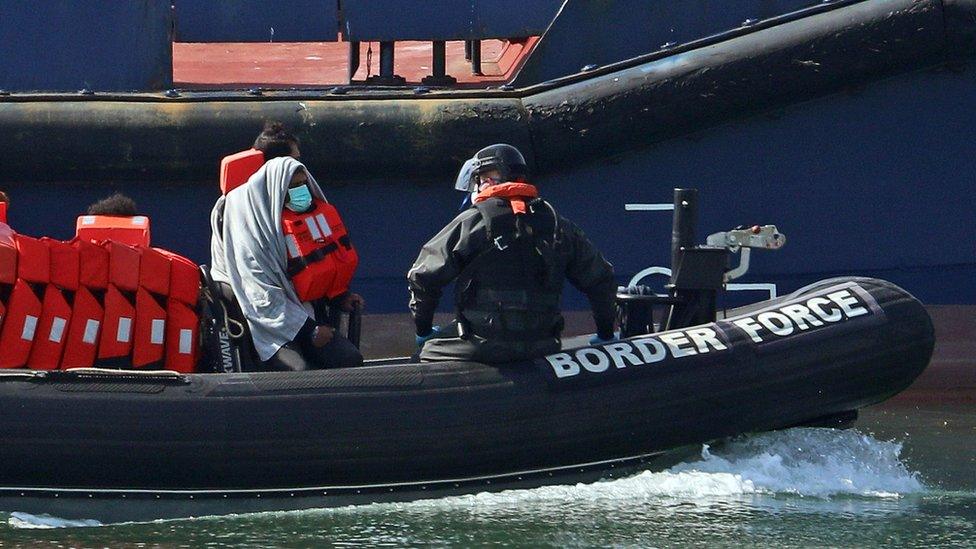
- Published8 August 2020
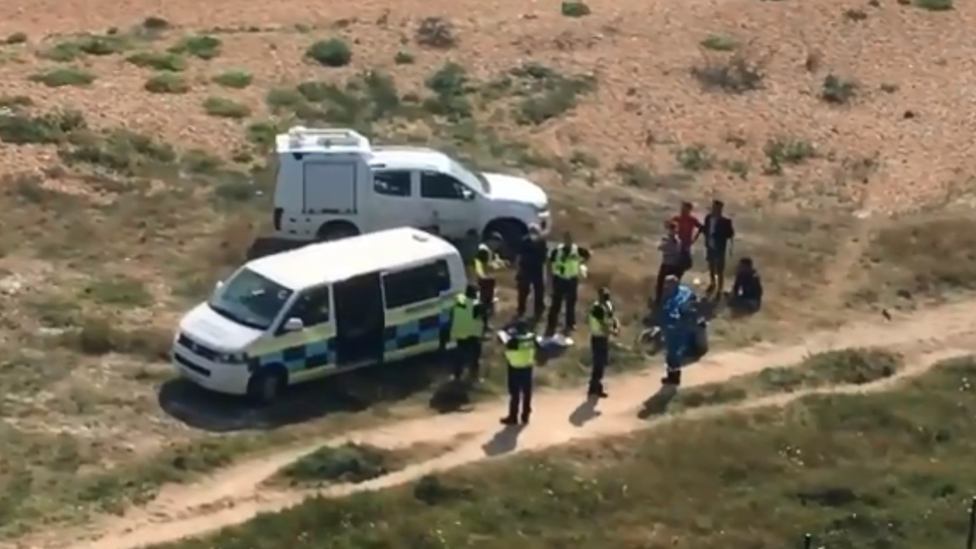
- Published8 August 2020
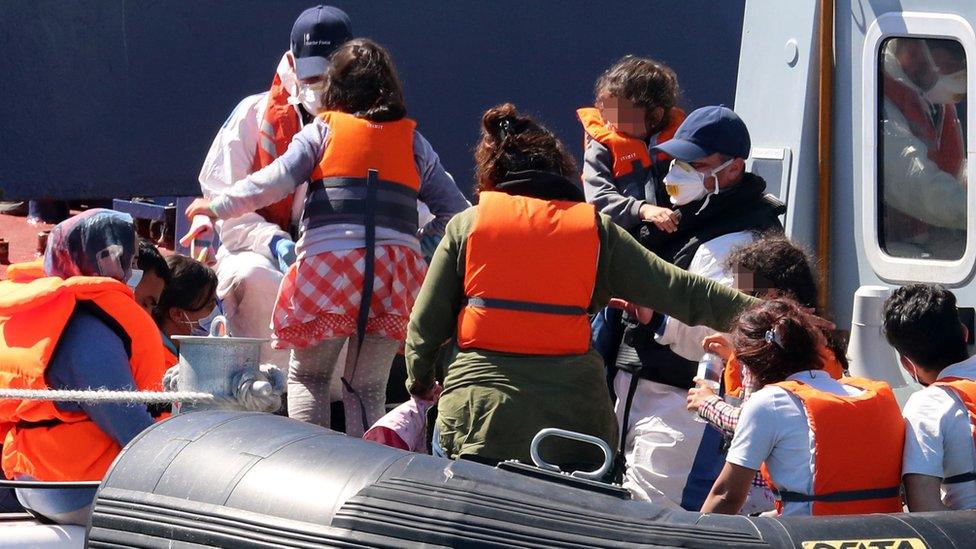
- Published7 August 2020
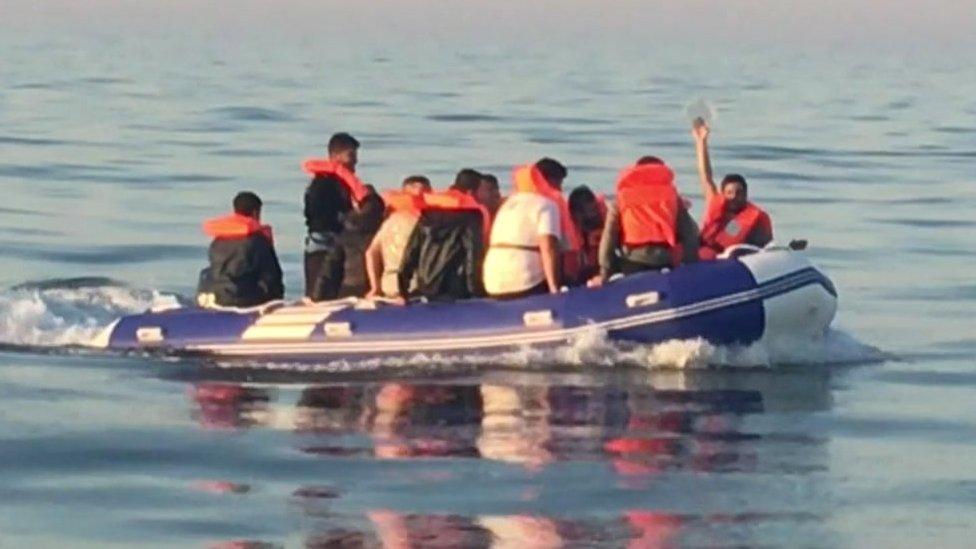
- Published7 August 2020
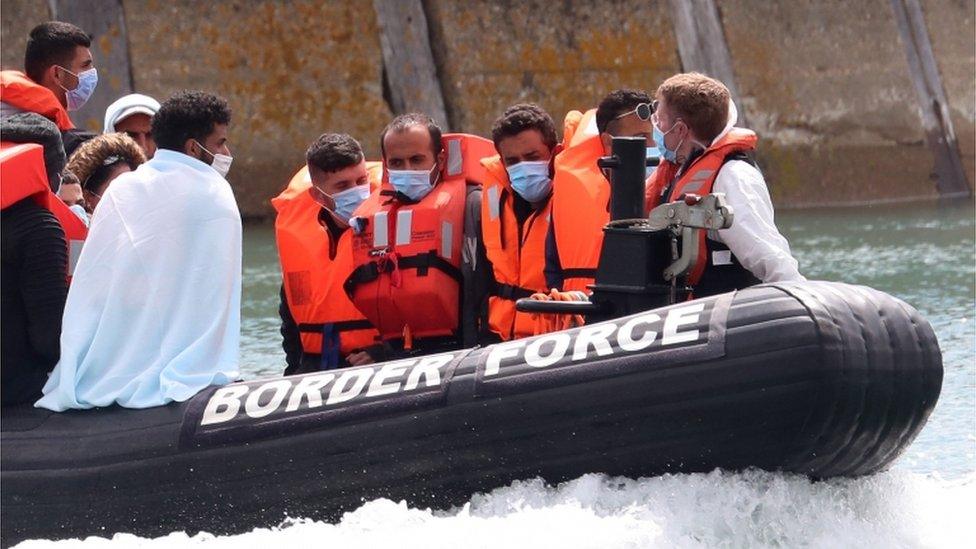
- Published7 August 2020
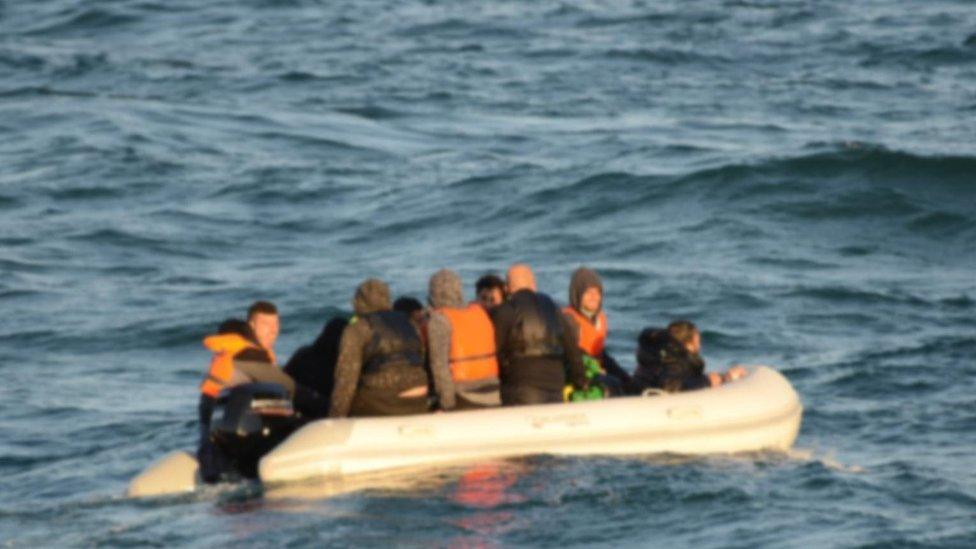
- Published4 August 2020
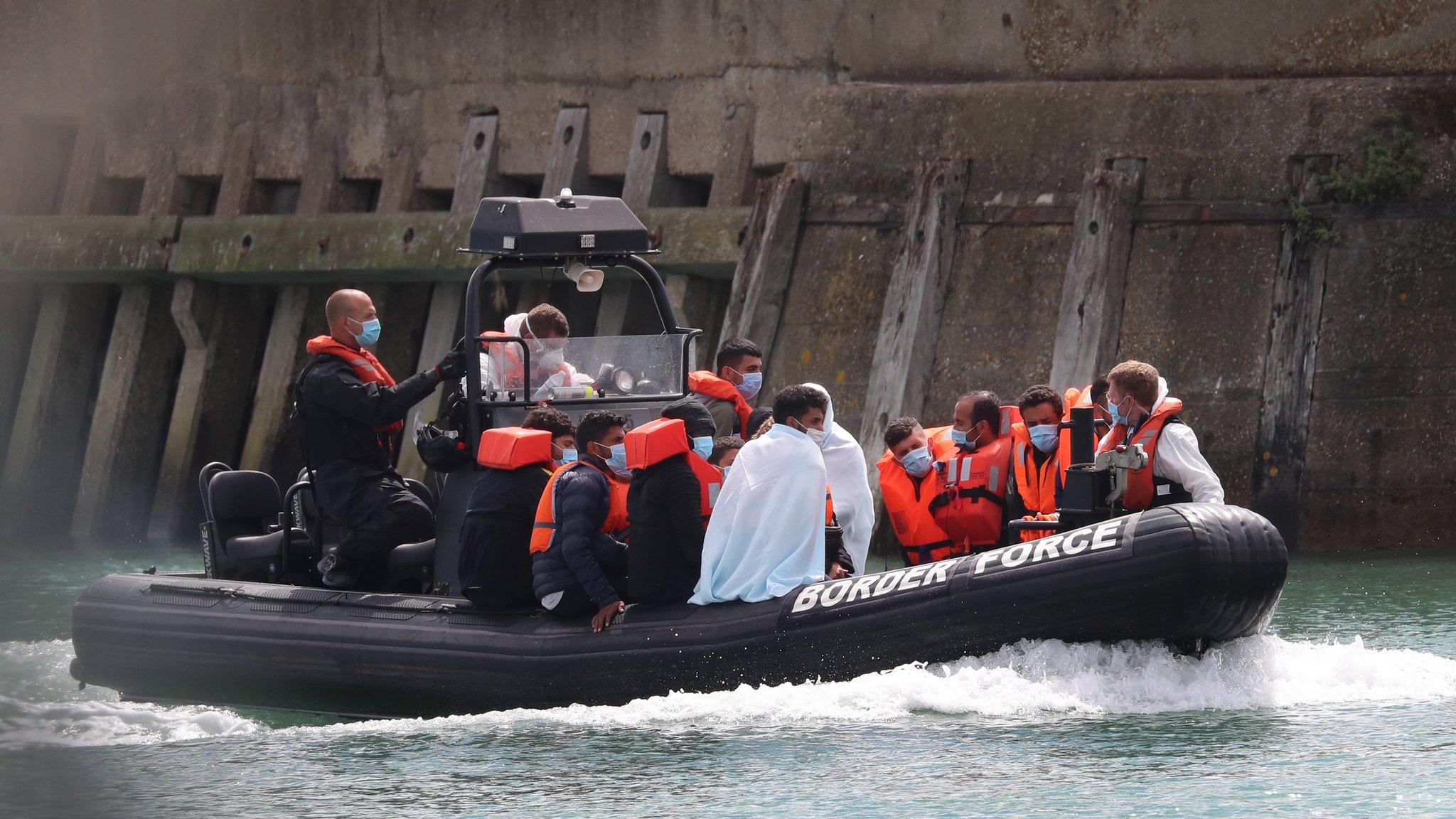
- Published30 July 2020
